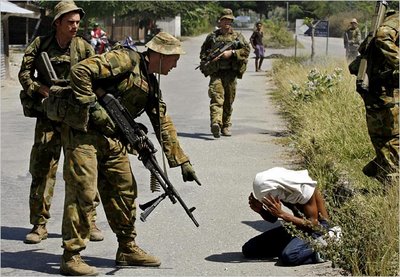The article below originally appeared in revolution magazine, #21, August-October 2003:
Samoan protests for the return of their NZ citizenship point up the need for a campaign for open borders and workers’ solidarity as against Labour’s denial of Samoan (and other migrants’) rights, argues Philip Ferguson.
In late March, thousands of Samoans protested in Wellington, Christchurch and in Samoa itself, calling for the repeal of the NZ Citizenship (Western Samoa) Act of 1982. This legislation, introduced by Muldoon’s National Party government, had stripped 100,000 Samoans of NZ citizenship rights. The abolition of these citizenship rights was part of a miserable 70-year record of NZ dealings with the Samoan people.
NZ had invaded Samoa in 1914 and was the colonial power there for the next five decades. Just after WW1, the NZ administration bore responsibility for an influenza epidemic that wiped out a quarter of the population. The NZ government then viciously suppressed the mass movement for Samoan independence, including gunning down unarmed independence protesters in 1929.
After independence, NZ continued to act as lord and master of Samoa and other former NZ-ruled countries in the Pacific. For instance, in the 1970s NZ governments masqueraded as generous aid donors to the Pacific. Yet, at that very same time, for every dollar of aid the Pacific countries of the Commonwealth received from New Zealand, they lost $3.74 in trade with this country. Most of the NZ aid was actually spent on NZ commodities, services and personnel. Moreover, it had little impact on expanding Pacific island exports to NZ. The 1970s also saw mass raids on Pacific Island ‘overstayers’ in NZ and large-scale deportations.
Continue reading “Immigration and citizenship: Labour versus workers”

